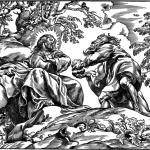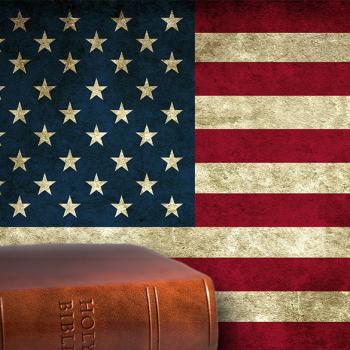
I am not the first person to write on the Seven Mountain Mandate. In fact, I didn’t know a lot about it until recently. This idea has seen an uptick in popularity with the Trump presidency. Trump’s spiritual advisor Paula White holds to this movement as well as other prominent government and Christian figures.
If you’re new to the name “Seven Mountain Mandate” – you have probably felt it’s reach. It has been in the Far Right Christian circles as well as politics for the last 50-or-so years. Let’s talk about what it is, where it came from, and where it’s headed.
The Seven Mountain Origin Story
Before we get to mountains, we must work through Dominionism. Dominionism was a Fundamentalist movement in the 1970’s through the 90’s as a response to the perceived threats of secularism, modernism, and liberalism. Dominionists saw that it was the job of the Christian to exert dominion. This includes nature, but it stretches to family, government, and entertainment.
This movement started in seminary with Reconstructionist Rousas John Rushdoony. He was a Calvinist theologian and philosopher who wrote on the need for America to return to ‘Biblical’ law. His work The Institutes on Biblical Law laid out the need for America to reinstate Mosaic penal codes. This would require the death penalty for things like rape, but also for homosexuality, witchcraft, and blasphemy. As a society, we have agreed that these things are not equal.
In American politics, this mandate has translated into a push for Christians to become more involved in government. Some proponents of the seven mountain mandate believe that Christians should seek to hold positions of power in government in order to shape policy and promote Christian values. Jerry Falwell’s Moral Majority, founded in 1979, picked up where Rushdoony left off. Francis Schaeffer and Pat Robertson were other Conservative who pushed for Right Wing activism in government throughout the 80’s and 90’s. The term “Seven Mountain Mandate” was popularized in the 2000s by a network of evangelical leaders and organizations.
Pluralism is the Problem
The rise of Liberal ideals and pluralism in America throughout the 20th century was troublesome for Fundamentalists. With the changing landscape of American culture came the fear and loss of power by Conservative Christians. As the country changed, Fundamentalism dug its heels in. Christian ideals and morals should be the law of the land, creating a theocracy. However, this goes against the general ideals of the Enlightenment that the Founding Fathers based the Constitution on.
Pluralism is a requirement if separation of church and state is to be upheld. Critics worry that if Christians gain too much influence in government, they may use that power to impose their religious beliefs on others, or to discriminate against those who do not share their faith. Overall, the seven mountain mandate remains a controversial topic in American politics, with passionate supporters and detractors on both sides.
What Now?
The Seven Mountain Mandate is still in our politics and is growing. Fundamentalist groups have been using local and state government to gain power and influence. While everyone deserves to be heard, this is a tricky step forward. When a political stance is against a minority, it holds too much power. The best way for a Christian to engage politics is to fight for the marginalized, even if it limits your own power.













